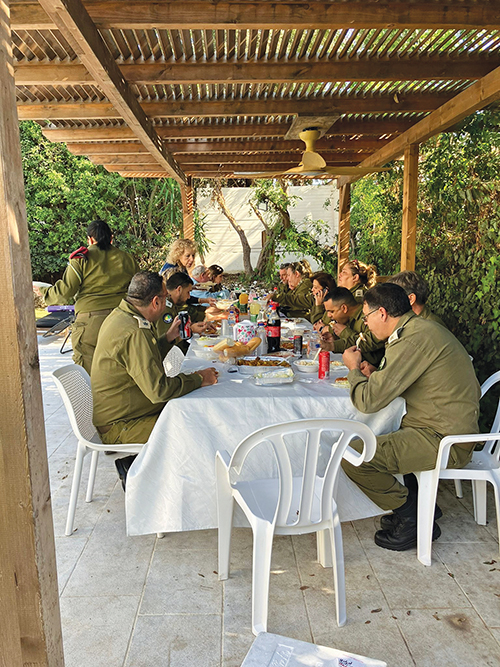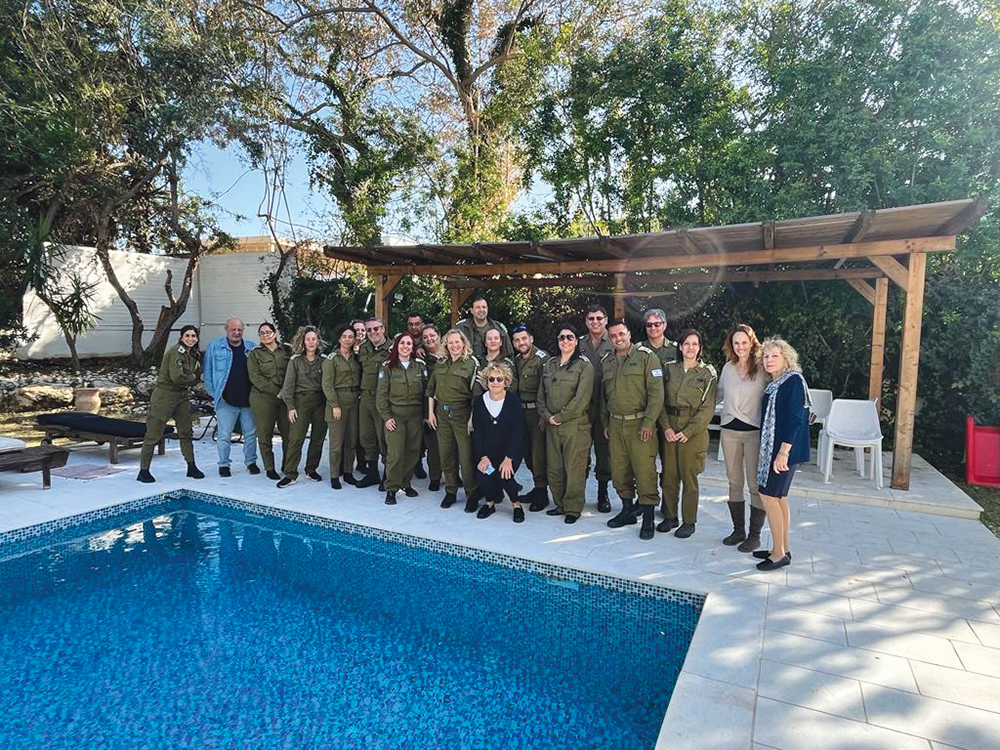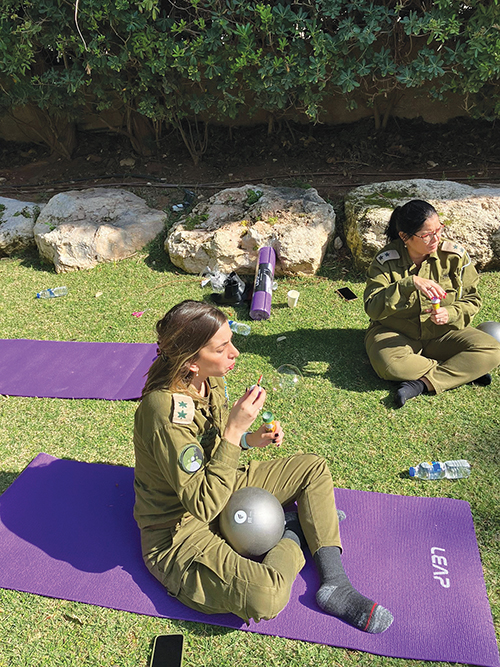IDF officers in charge of notifying families of fallen soldiers receive respite and assistance.

(Courtesy of OneFamily) Caesaria, January 21: The OneFamily organization hosted a unique day retreat for 25 of the most senior officers of the IDF Casualty Center, providing a short respite and critical support for those who have one of the most difficult jobs in the army.
The IDF Casualties Center is a unique division of 1,800 soldiers tasked with notifying families of fallen soldiers. The unit was founded in 1948 but only became an active unit two years after the 1973 Yom Kippur War, which claimed the lives of thousands of Israelis. They are tasked with notifying families of fallen soldiers and then remaining in groups of three with each bereaved family for the funeral and week of shiva.
Alona Saloman is the officer in charge of IDF Casualties Center headquarters and also a longstanding supporter and general committee member of OneFamily. “I’ve known for a long time that OneFamily has a lot of wisdom and experience helping those in extreme grief, encountering families shattered by terror and death and speaking to them in their hardest moments. This was a way of sharing that wisdom with the officers of the IDF who have taken on this incredibly challenging task.”

She continued, “The hardest part for these officers is having to absorb the anger and pain expressed by the mourners. Sometimes they come to families who slam the door and won’t let them into the house. While everyone can understand their difficult feelings, it is these officers who have to absorb everything and be with the families for seven days.”
Soldiers gathered as a team to strengthen each other, receive counseling and support from social workers, and unwind from their stressful and sensitive work. The day, spent in a luxurious private home, included workshops, important sessions with professionals, an elaborate lunch, and opportunities for yoga/exercise.
Batya Wineberg is OneFamily’s northern region coordinator, who put together the full day. “These officers need therapy; they need a safe space to simply be able to discuss it, to talk through what they are each going through, and to know how to deal with it.”
She added, “The timing of the retreat was almost eerie. The members of the Casualty Team have had no rest since Oct. 7. Who could have possibly known when they paused to get much-needed support themselves, that overnight they would need to contact 25 families — and counting — in response to yesterday’s [Jan. 22] horrible death toll.”
OneFamily, whose mission is to provide every type of support necessary to victims of terror and their families, has been inundated with thousands upon thousands of bereaved, orphaned, injured and more since Oct. 7. OneFamily has had to maintain its prior programming while expanding and finding new ways to reach so many people in so little time. They have also had to find new ways to help with new problems, like solutions for displaced families, counseling for the families of the hostages still in captivity, and the mounting stress and challenge for the IDF itself.

“We are a small country, and everyone knows someone suffering a tragic loss,” Wineberg explained. “This is so personal for everyone, and it has taken a tremendous toll on these officers.”
Salomon explained that part of the success came from keeping it to a small and focused group of the leadership who can return rejuvenated to help the hundreds of soldiers within their unit.
Wineberg went on to say that while this was a new initiative, it was most definitely only the first. “There was much talk about expanding our cooperation and assistance. It was evident to everyone that OneFamily’s years of helping and healing others give us tools and knowledge that can help the Casualty Unit. For OneFamily it is also an opportunity for us to acquaint these officers with what we can offer the families that they encounter. They have to do this impossibly difficult job, they have to be there for such a difficult week. Then they have to move on. We remain with these families for the rest of their lives. We hope that while fulfilling their challenging mission they will refer us and help us reach the families faster and more efficiently.”
The officers all spoke about the need for more such opportunities for respite and hope to organize future events as much as the war and the losses will allow.










